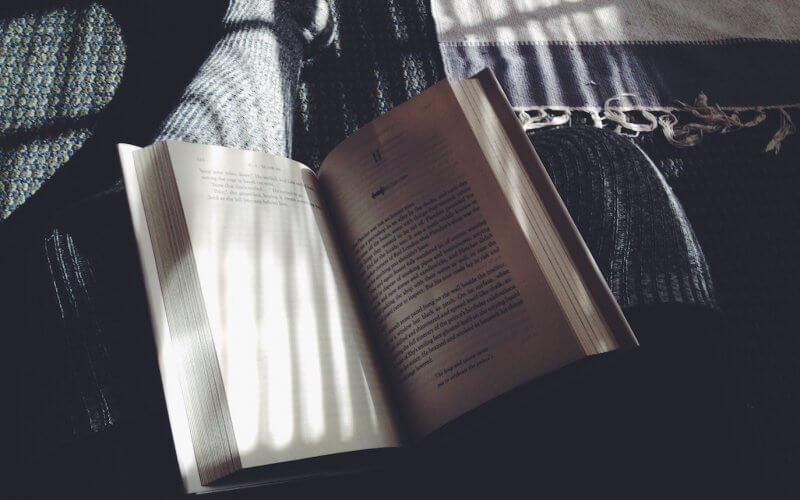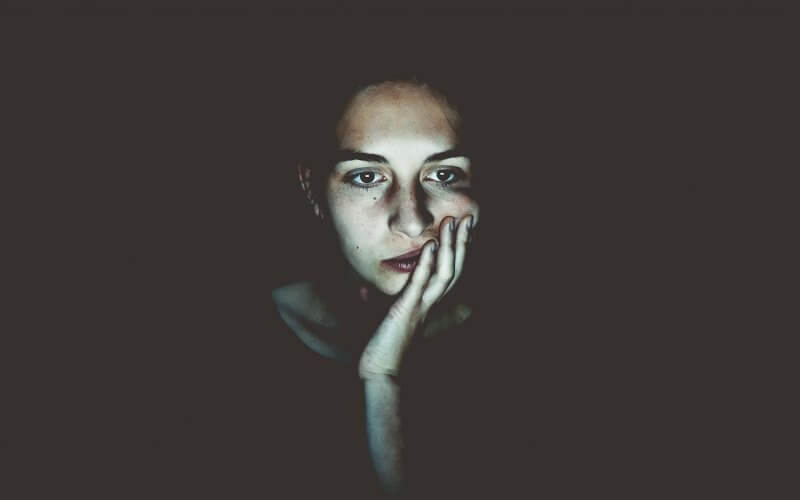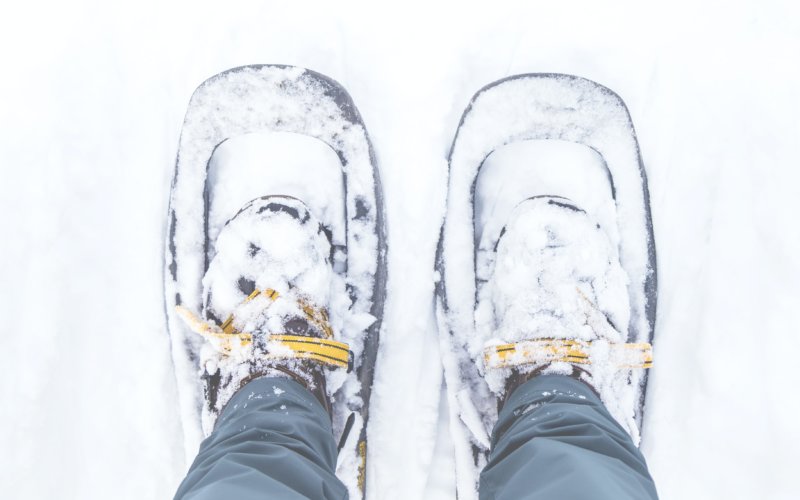Why can’t I sleep?

“Why can’t sleep?”- I’m lying in bed, wide awake, the minutes until morning slipping away. No matter how hard I try, sleep just won’t come. Sound familiar? If “Why can’t I sleep?” is a familiar refrain, you’ll know exactly what I’m talking about.
The worst part is that for all your best efforts you’re probably making the whole thing worse. In other words, actively trying to fall asleep just doesn’t work.
As someone who’s had (what feels like) thousands of nights where I just cannot, I recently decided enough is enough, I wanted to finally have an answer as to why can’t I sleep and how I could fix it with real (non-chemical) solutions. Here’s what I found out:
Missing the sleep train.
Your ability to fall asleep depends on your biological rhythms, among other things. A sleep cycle is exactly that- a biological rhythm. This cycle is turning all day and testing your propensity for sleep. But it’s really only at night, with a whole day’s worth of tiredness, that you start to feel it.
Yawning, heavy eyelids and so on- these symptoms indicate the start of the sleep cycle, otherwise known as the sleep train.
It’s time to get ready for bed and fall asleep (easily). But if you fight it, the desire to sleep passes and you get a little energy boost. The desire to sleep eventually reappears about an hour and a half later with the start of the next sleep cycle.
In short, being attentive to these signs and going to bed at the right time make a big difference in how easily you fall asleep. The flip side is that once you miss the sleep train, you’ll just have to wait on the platform (or toss and turn in bed) until the next sleep train arrives.
Sleep vs. TV
You started nodding off in front of the TV… but you really want to see what happens at the end of this episode. No matter how hard you try to fight it, your couch is comfy and you’re tired… you fall asleep. The credits roll and you shuffle to bed, but by the time you get there, you’re wide awake. Another classic ‘why I can’t sleep’ conundrum. Here’s why:
Firstly, there’s our old friend- the sleep train. You already jumped aboard and left the station without really realizing it. But bad news, because you weren’t all that comfortable, you fell off at the first bump in the tracks. Now all you can do is wait patiently for the next train to start your complete night of sleep.
Secondly, you pretty much took a nap on the couch. As a result, your sleep pressure is lower, your body needs to sleep less and so falling asleep is harder. By the way, napping late in the day is a big no-no for anyone who finds it hard to sleep.
I just finished work (or playing video games)
So you just finished work, you get in bed and… surprise, surprise “I can’t sleep”. Except, it isn’t actually that surprising. It’s physiology in action, here comes the science:
Networks of wakefulness
Our brains contain complex networks of neurons communicating with one another via neurotransmitters. These networks are responsible for wakefulness. Interesting side-note- there’s just one for sleep, we’re fighting a pretty one-sided battle here, people. The activity of these neurons diminishes or stops during sleep and is stimulated by internal factors (stress, rumination) and our external environment (physical activity, noise…). This neuronal activity inhibits the onset of sleep, it’s responsible for those “I can’t sleep” moments.
When you work or play video games late at night, these neurons/wakefulness networks are activated. You ruminate, move around, stress out… and it takes time to find a state of calm that will enable you to fall asleep. That’s why relaxing activities before going to bed are a good idea.
So if you just stopped working or playing video games right before going to bed you won’t be able to fall asleep, even if you were on time for the sleep train- you’ll have to wait for the next one. Here’s an example, you’re tucked up in bed with a really great book, instead of falling asleep after 5 pages like you normally do, you just keep reading until 3 am. This starts to make sense when you look at what’s going on in your brain. You’re enjoying reading which translates into the secretion of dopamine- the ‘pleasure’ neurotransmitter. And pleasure is part of these wakefulness networks. When I can’t sleep I reach for the most boring book I can find!

And then, there were screens
Once you start adding screens into the mix, you’re dealing with a whole different set of problems. We’re spending more and more time in front of screens, and the latest models use LED and contain a lot of blue light. As screens are often backlit and relatively small, this blue light reaches our eyes from a very short distance.

Blue light tells our brains that it’s daytime (via the melanopsin in our photosensitive retinal ganglion cells) by inhibiting the secretion of melatonin (the hormone that tells our brains it’s nighttime). With our eyes on a screen, we contribute to the desynchronization of our biological rhythm and delay falling asleep.
A study showed that the time spent on an iPad at night can lower melatonin levels by 23%. So not a good idea to google why can’t I sleep if you’re lying in bed awake.
Can’t sleep, too hot
The body’s core temperature (influenced notably by that of your room) must lower so that we can fall asleep.
Your body temperature is intrinsically linked to your ability to fall asleep.
This means that if you’re too hot, there’s no way you’re falling asleep. But don’t sweat it- it’s normal. The body just needs to cool down in order to sleep, which is why you often stick a foot out from under the duvet. Other strategies have their own merits: A cold shower before going to bed; not heating the bedroom and airing the room before going to bed. The ideal bedroom temperature is between 16 and 18°C (60-64°F) and shouldn’t exceed 21°C (70°F). Of course, this is more of a problem in summer, when, personally I can’t sleep without air-con.
My feet are too cold
This section is dedicated to all the people with cold feet out there, or rather the bedfellow(s) you choose to warm your feet up on. So when my feet are cold, why can’t I sleep? Well, my cold-footed friends, the answer is actually pretty logical. As mentioned above, the body needs to lower its internal temperature in order to fall asleep. This drop in temperature takes place in the extremities (hands and feet) with their numerous blood vessels. By taking blood to the extremities, the body produces a thermic exchange with the environment. So you warm up the bed you’re in and reduce your body temperature in order to fall asleep.
Except if you have cold feet, this isn’t what happens at all. On the contrary, your body isn’t heated up enough and it perceives the environment as too cold to abandon any of its temperature. I can’t sleep with cold feet, no-one can. If we have one to hand (or rather to foot) it’s normally our partner who provides a solution, when we stick our cold feet against them to warm up. But other more ‘do-it-yourself’ solutions also work- thick socks or hot water bottles are perfect for heating up cold feet.

Insomnia and stress
When it comes to why can’t I sleep situations, stress is a recurring offender. Unfortunately, the day’s worries don’t fade away the moment you get into bed. That little hamster wheel of stress in your brain starts turning and once it does, it’s hard to stop it.
Stress attacks our ability to falling asleep and makes you feel more awake doing it. The worst is that, as I mentioned earlier, it’s easy to get stuck in a vicious cycle.
You’re stressed because of tomorrow’s meeting/ exam/ appointment and you won’t be on top of your game. Stress takes over. It stops you from being able to sleep, which just stresses you out more. End result- your night is shorter and you wake up lacking sleep.
Discover your sleeper profile with this sleep test
Start



